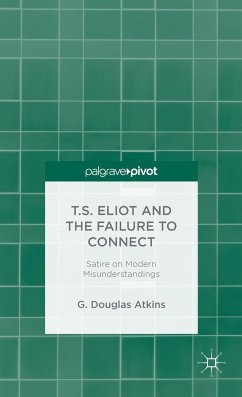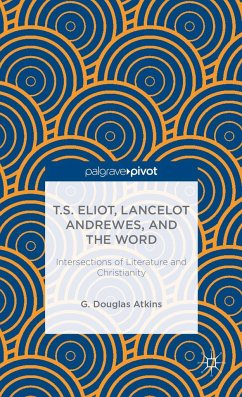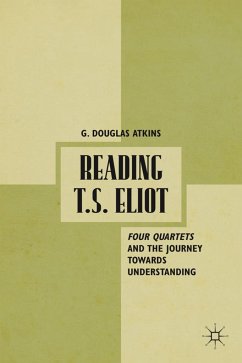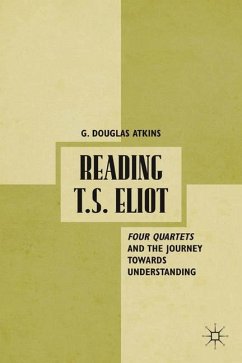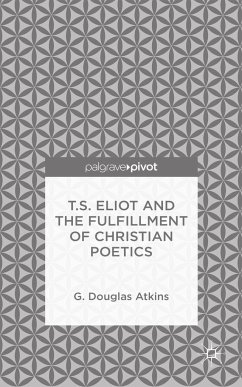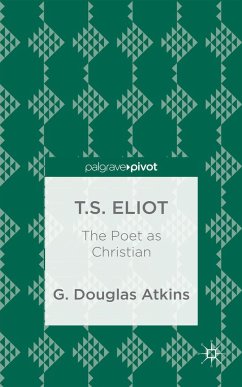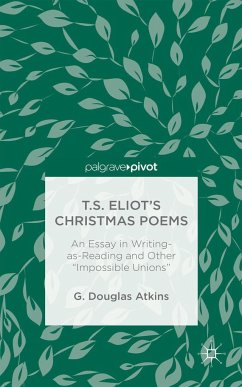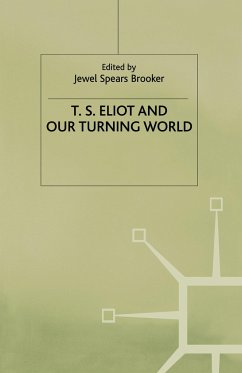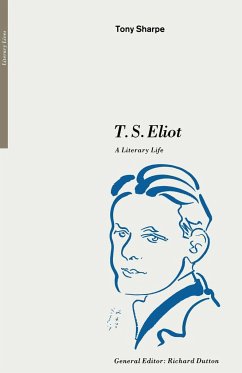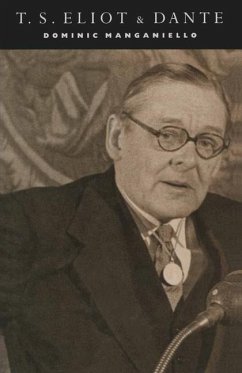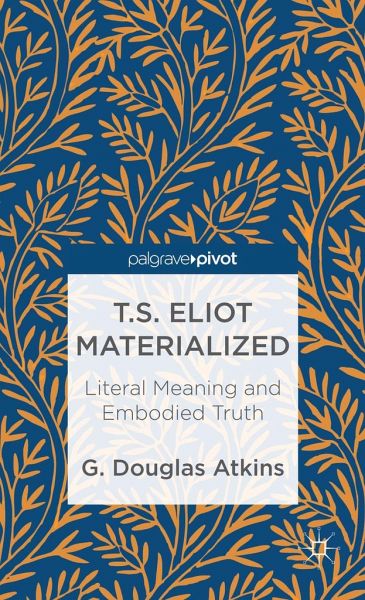
T.S. Eliot Materialized: Literal Meaning and Embodied Truth
Versandkostenfrei!
Versandfertig in 6-10 Tagen
38,99 €
inkl. MwSt.

PAYBACK Punkte
19 °P sammeln!
By reading T.S. Eliot literally and laterally, and attending to his intra-textuality, G. Douglas Atkins challenges the familiar notion of Eliot as bent on escaping this world for the spiritual. This study culminates in the necessary, but seemingly impossible, union of reading and writing, literature and commentary.





